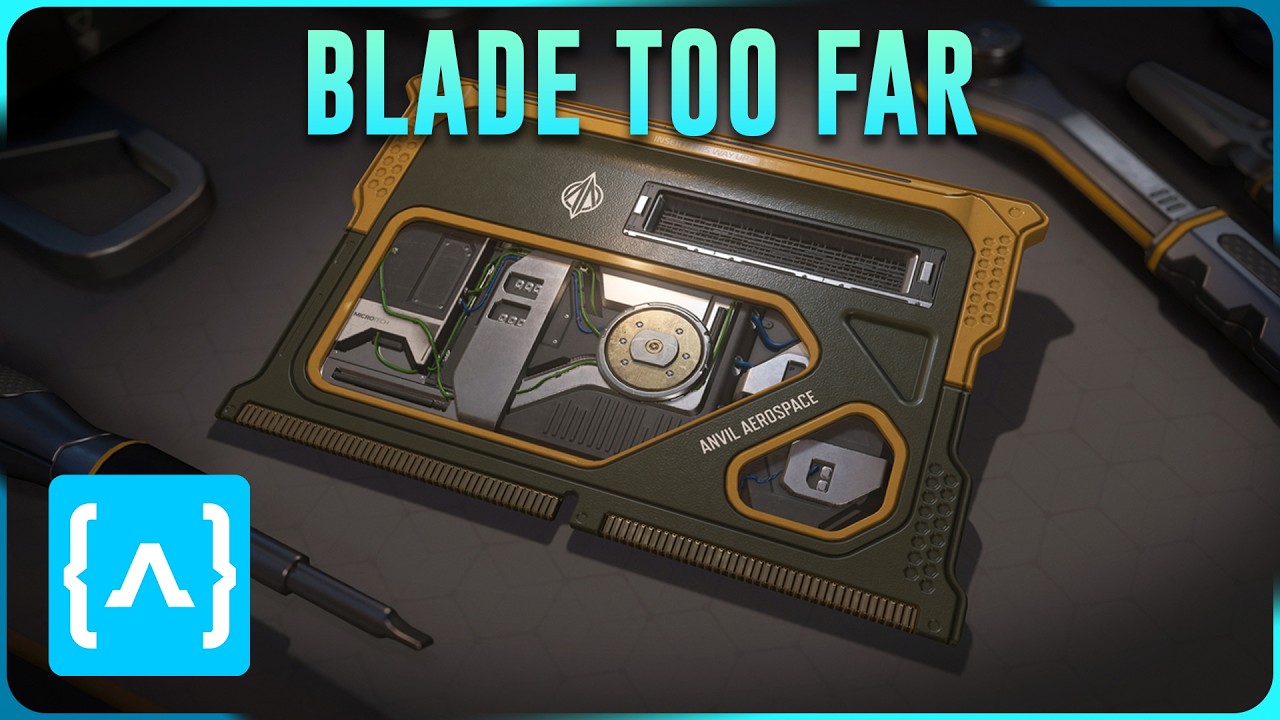The video highlights the controversy over Star Citizen’s introduction of pay-to-win flight blades and weapon kits, which sparked community backlash due to concerns about unfair advantages and monetization strategies. It warns that this may signal a shift toward more aggressive monetization, risking player trust and the game’s long-term integrity, and calls for more sustainable, player-friendly approaches.
The video discusses the controversy surrounding the introduction of flight blades and weapon kits in Star Citizen, which initially appeared as a potential cash grab. These items, introduced during Invictus launch week, allowed players to temporarily enhance their ships’ speed or maneuverability and added new weapon options and bomb racks. However, the key issue was that these features would only be available for purchase through the pledge store with real money, and would only be added to in-game stores or loot pools after three months, raising concerns about pay-to-win mechanics and monetization strategies.
The community and content creators reacted strongly against this decision, expressing fears that it marked a shift toward more aggressive monetization, where in-game progression and competitive advantage could be bought rather than earned. The main issues were that these blades provided tangible performance improvements locked behind a paywall, and that they were ship-specific, requiring multiple purchases for different ships. This approach was seen as inefficient and potentially unsustainable, as it would require maintaining numerous versions of similar items and could lead to a cluttered, unmanageable system.
Further concerns centered on how these monetized components would impact gameplay fairness and progression. Offering weapons and upgrades through the pledge store undermines the value of in-game achievements, such as earning reputation or materials to craft items. Many players viewed this as a dangerous precedent that could eventually extend to other features, even core gameplay elements like base building or access to entire star systems. The community saw this as a step away from the originally promised full customization and a move toward a heavily monetized game environment.
In response to the backlash, Cloud Imperium Games (CIG) issued a brief statement, acknowledging the community’s reaction and announcing that future similar items would be available in-game immediately upon sale. However, they indicated that the already released flight blades and weapon kits would be added to in-game stores in the next patch, without admitting any mistake or addressing deeper issues. This limited response was viewed by many as insufficient and as a sign that CIG may be planning a broader monetization strategy, which could further alienate the community and threaten the game’s long-term trust.
The video concludes with concerns that this incident might be a test of how far CIG can push monetization before facing backlash, and warns that reversing this trend requires management intervention. The presenter emphasizes that the core problem is the undermining of player progress and the risk of more aggressive monetization in the future. They call for the community to remain vigilant and hope that CIG will learn from this experience, suggesting that a more sustainable approach would be to remove such items from the pledge store altogether. Ultimately, the video questions whether this marks the beginning of a new, heavily monetized era for Star Citizen.
